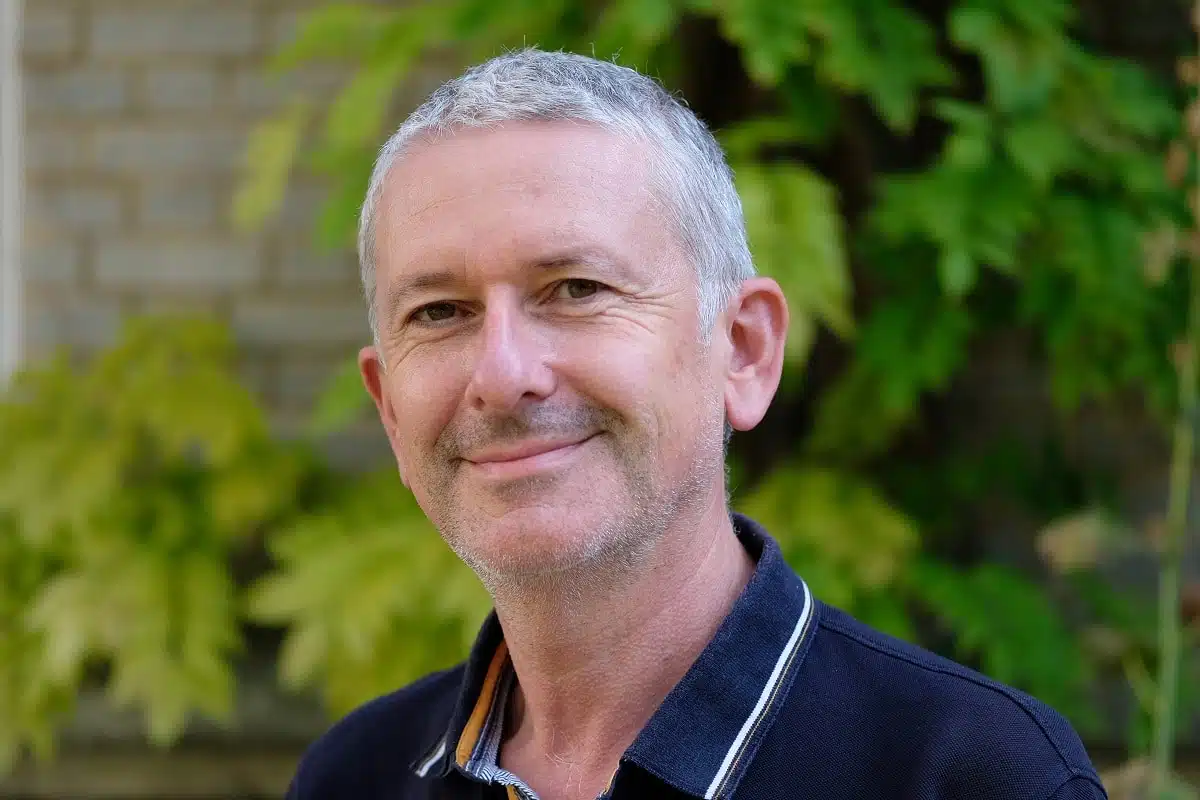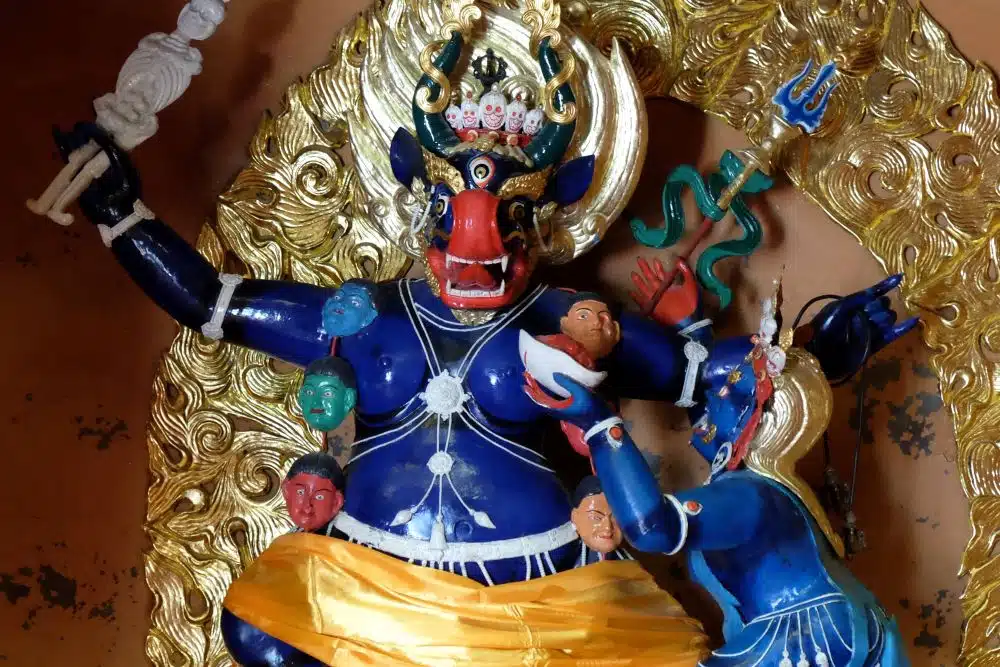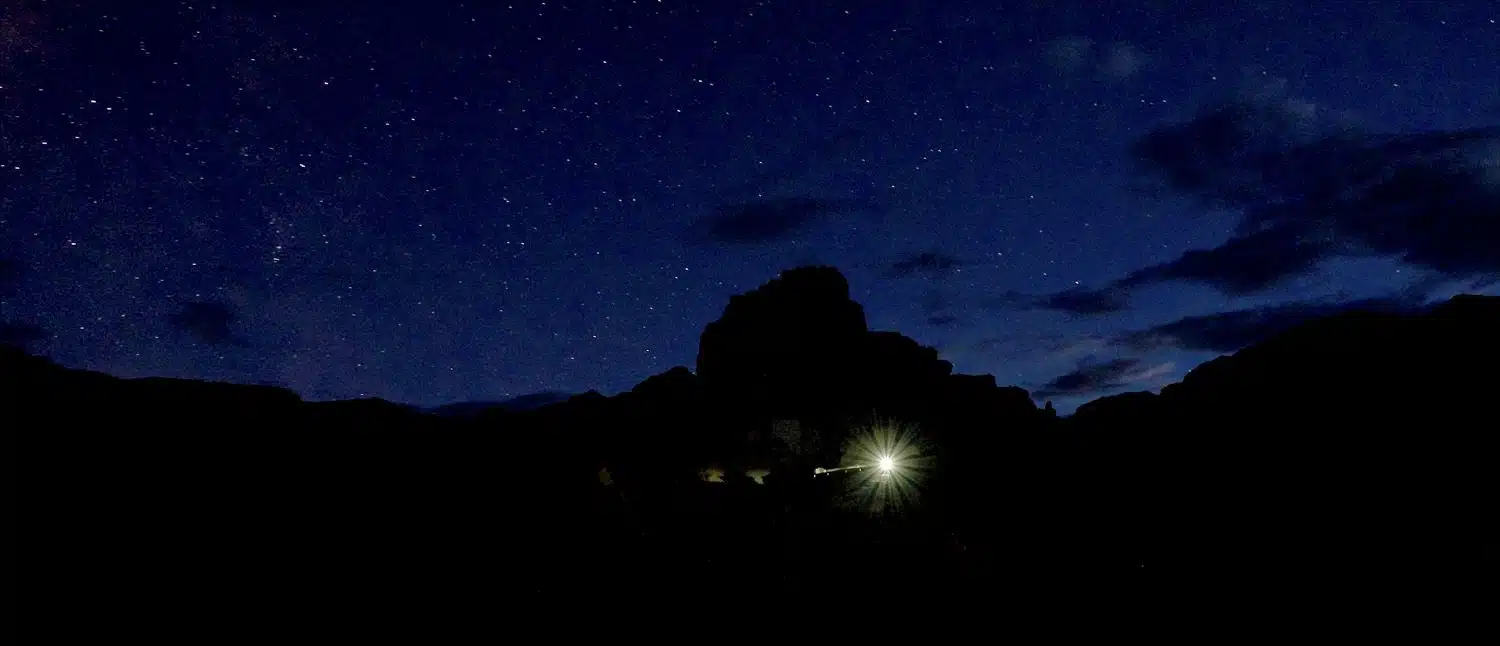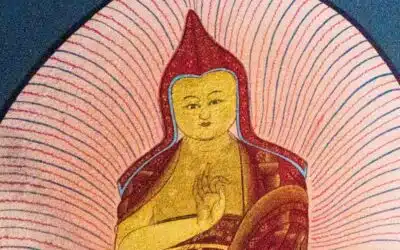KO Outside, OK Inside?

Written By Damien Brohon
Blog | Mind and Dzogchen | Reflections on life
In this article “KO outside, OK inside?”, Damien talks about how chaotic external conditions are opportunities for Liberation.
Series: Difficult conditions in Dzogchen
KO Outside, OK Inside?
“An unexamined life is not worth living,” said Socrates. Don’t worry—this isn’t the opening line of a philosophy essay, even if it is that time of year in France. Nevertheless, one could argue that an unexamined life tends to appear as the alpha and omega of our reality. Our origin (before birth) and our destination (after death) remain mysteries. Best not to worry about them. We know nothing. There is nothing to know. It’s nothing. What does exist, however, is this life. It follows a predictable order and regular patterns. Thursday means sauerkraut, the neighbor is friendly, although his radio is too loud, and middle-class taxes are way too high, right? So, I know exactly who I am. I can dream of remaining the same from moment to moment because I’m part of a cosmos. This Greek term refer to a well-ordered, coherent universe. Believing firmly in its solidity is an excellent way to keep the Dzogchen view at bay—highly recommended for anyone looking to avoid it! It’s also the best way to maintain our karmic vision – that is, the way our habitual tendencies shape our “reality.”
“At each of these transitions, what was constructed and seemed utterly real naturally dissolves. At that moment, our luminous empty nature radiates and can be recognized. ”
For those who see this reality as a prison, there are opportunities for liberation. These take the disorienting form of chaos. In traditional cosmologies, this term refers to what exists before or after a cosmos. It can be translated as “gap” or “break.” Order has vanished, and the opening is therefore limitless. Chaos can manifest in a myriad of ways in our lives to jolt us awake. Everything was fine. And then… nothing works anymore—no longer as planned, wanted, or as it “should be.” The train does not arrive. We no longer understand each other. We don’t want to hear what the other person has to say. We’re breaking up. A power outage paralyzes the region. I don’t know what to do about my missing car; I’m sure I parked it right there.The friends who were supposed to help have vanished into the starless night. A monkey stole my passport, half-ate it, and is now using it to wipe its behind. The borders are closed due to a nuclear accident. Aliens are arriving, but they don’t look anything like the New Age descriptions (or if they are spreading cosmic awareness, it’s way too aggressive). We could list endless disaster scenarios. They all have one thing in common : disruption. Our habits are broken. Our expectations are overturned. Chaos leaves us KO.
For Dzogchen, this is good news! Difficult external conditions provide opportunities for liberation. In this tradition, life and death (lives and deaths) are seen as a succession of six intermediate states (Tib. bar do). So far, we have spoken about the intermediate state from birth to death (skye shi’i bar do). wo others cross this one : the bardo of dreams (rmi lam bar do) and the bardo of meditation (gsam gtan bar do). It is followed by the bardo at the moment of death (‘chi kha’i bar do), then the bardo of the reality of phenomena (chos nyid bar do), and finally the bardo of becoming or rebirth (rang bzhin skye gnas bar do). Then, off we go again into a new life!
At each of these transitions, what was constructed and seemed utterly real naturally dissolves. At that moment, our luminous empty nature radiates and can be recognized. Direct vision is possible, for example, by being aware as we enter and exit dream space, if we are lucid enough. This is also the central aim of meditation: to recognize the nature of life’s appearances, not to reify them. The small and large chaos of our lives—whether it knocks us out or not—can create cracks in our usual mental constructs. This process may be uncomfortable or even painful, but at such moments, the solidity of our habitual grasping is suspended. What we usually cling to — our favorite mug (broken), our partner (divorced), our familiar surroundings (destroyed) — slips away, and the true nature of our mind can be seen more clearly… if we have trained for it.
The Tantra of the Net of Illusion (Skt. Guhyagarbha Tantra, Tib. rgyud gsang ba’i snying po) states: “In a single instant, separation; in a single instant, perfect awakening.” (skad cig gcig gis bye brag phye / skad cig gcig gis rdzogs sangs rgyas) [1] Either we see chaos/bardo as a terrible threat to our identities—and our habitual tendencies persist. In this case, we are separated from our true nature. Or, we recognize the luminous clarity that comes with stabilizing view, meditation, and integration. Liberation arises. Then, we may say that we are KO on the outside (shaken by outer conditions) but OK on the inside (this inner self being the spontaneous recognition of our nature).
There is no greater contribution to the common good than becoming a living link to this unfathomable, immaculate, radiant nature. It is the natural heritage of all sentient beings. When we realize this, we offer every person or animal we meet a chance to connect with it. The great masters of the Dzogchen lineage naturally radiate this realization, making its sharing the very heart of their lives. Such is the motivation at the foundation of this path.
More Posts
Being Your Own Master
Relationship with a master requires discernment. “Being your own master” offers insights into understanding devotion and avoiding pitfalls.
Phenomena
"Phenomena" is the second entry in a new category designed to improve understanding of essential Dzogchen words and concepts.
The Story of the First Masters: Manjushrimitra
We continue the Stories of the First Dzogchen Masters with Manjushrimitra, who structured the verses of Dzogchen into three series.





